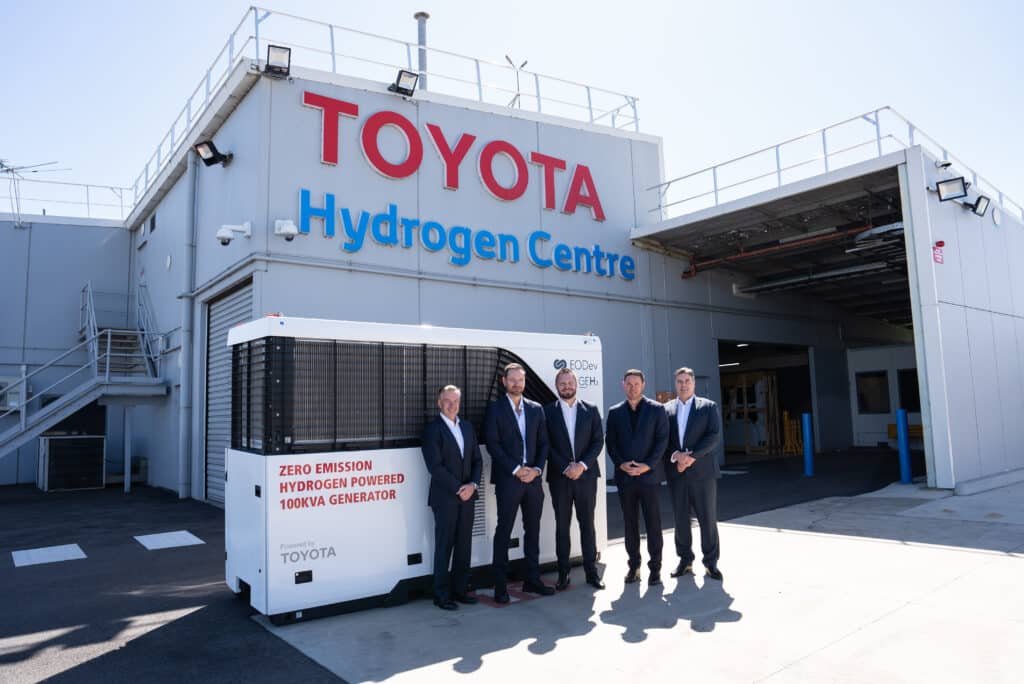Hydrogen generators are set to hit the local market, after Toyota Australia signed a manufacturing deal with French developer Energy Observer Developments (EODev).
Toyota will invest $3.3 million to assemble up to 100 generators over the next three years at its former manufacturing facility in the Melbourne suburb of Altona.
The 110 kVa GEH2 stationary hydrogen fuel cell power generators will use the same system as is in the Toyota Mirai fuel cell electric vehicle, which the manufacturer says provides zero emissions of either fine particles, carbon dioxide or nitric oxide.
Toyota plans to distribute both the locally assembled and fully built generators in Australia through retail partner Blue Diamond Machinery – which is dedicated to the wider adoption of low and zero emission technologies – and will also sell them to Toyota New Zealand.
As the market develops, additional models with higher power supply will be considered for assembly and distribution in Australia, the company says.
EODev CEO Jérémie Lagarrigue says the agreement represents a milestone for the French company, being the first time its GEH2 power generator will be assembled outside of its production facility in France.
“The GEH2 generator has been in production since 2021 and is currently sold across several European markets, in North America, in the Middle East, and in Australia. We see a fast-growing potential for its use in this part of the world” he says.
“We are pleased to have the support of Toyota Australia in being able to assemble the generators locally, which will enable more customers to access this clean technology and help reduce noxious emissions from local power generation.”
Strong potential
Toyota demonstrated the potential for the EODev GEH2 hydrogen fuel cell generator last year when it was used to power the giant neon sign at Marvel Stadium in Melbourne during an AFL match, and again earlier this year at the Melbourne F1 Grand Prix where it powered six marquees in the tech hub over four days.
Potential applications for the GEH2 power generator include powering remote off-grid sites such as mining sites, construction sites, BEV charging sites, as well as events.
The GEH2 generator can also be used to provide emergency backup power for hospitals, commercial buildings and anywhere where stable power supply is required.
“This agreement signed today is not about a trial or pilot program, it is about concrete action that will improve Australian businesses’ access to stationary hydrogen fuel cell generators and help them reduce their carbon footprint,” Toyota Australia president and CEO Matthew Callacho says.
“At the same time, our investment will help to build Australian skills and capabilities in hydrogen technologies in what is a rapidly growing industry that will help Australia meet its emission reduction targets.”


